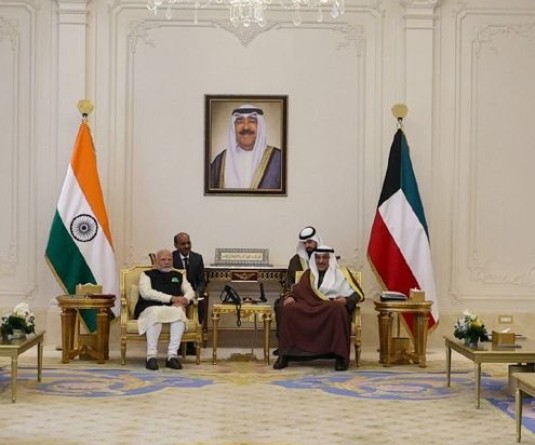
NEW Delhi, March 11 (Agencies): Assuring that India has started a process to trace black money stashed away in foreign banks, Finance Minister Pranab Mukherjee said on Friday the government would work under the legal framework to bring the money back and punish the culprits. Stating that the quantum of black money had not been specified by anybody, the minister said: “Various figures are being floated - the first thing I have decided to do is to appoint a group to quantify the black money.”
Replying to a debate on the budget for fiscal 2011-12 in the Lok Sabha, he said varying estimates put the quantum as ranging between $462 billion to $1.4 trillion but the figures were not reliable. Mukherjee said the government has two figures on black money -- one by a Bharatiya Janata Party (BJP) task force that has put the amount between $500 billion to $1.4 trillion and the other by the US-based Global Financial Integrity that estimated that Indians had stashed $462 billion in foreign banks between 1948 and 2008. The finance minister said the government had started a legal proceeding to book the culprits.
“Any amount of anxiety is not going to bring the black money back. We live in a society which is governed by rule of law and we shall have to proceed as per the law,” he said. He added that the government just cannot hang anybody, no matter how serious the crime. “First, we shall have to go with legal framework and we have done it,” he said. Referring to an incident of early 1970s when he was a deputy minister for industrial development in the Indira Gandhi ministry, Mukherjee said political compulsions generally give rise to corruption and black money.
“In my younger days being overwhelmed by these types of sentiments, I conducted some raids. It was a very fruitful raid,” he said, hitting back on opposition leaders who accused the finance minister of going soft on black money issue. “One tonne primary gold was discovered. But later on with the change of government, I was accused of causing emergency excesses and put in the dock,” he added. Meanwhile, a court Friday granted conditional bail to Hasan Ali Khan, accused of stashing away $8 billion in foreign banks. The Enforcement Directorate (ED) has failed to establish a case of money laundering against him, the court said.
Replying to a debate on the budget for fiscal 2011-12 in the Lok Sabha, he said varying estimates put the quantum as ranging between $462 billion to $1.4 trillion but the figures were not reliable. Mukherjee said the government has two figures on black money -- one by a Bharatiya Janata Party (BJP) task force that has put the amount between $500 billion to $1.4 trillion and the other by the US-based Global Financial Integrity that estimated that Indians had stashed $462 billion in foreign banks between 1948 and 2008. The finance minister said the government had started a legal proceeding to book the culprits.
“Any amount of anxiety is not going to bring the black money back. We live in a society which is governed by rule of law and we shall have to proceed as per the law,” he said. He added that the government just cannot hang anybody, no matter how serious the crime. “First, we shall have to go with legal framework and we have done it,” he said. Referring to an incident of early 1970s when he was a deputy minister for industrial development in the Indira Gandhi ministry, Mukherjee said political compulsions generally give rise to corruption and black money.
“In my younger days being overwhelmed by these types of sentiments, I conducted some raids. It was a very fruitful raid,” he said, hitting back on opposition leaders who accused the finance minister of going soft on black money issue. “One tonne primary gold was discovered. But later on with the change of government, I was accused of causing emergency excesses and put in the dock,” he added. Meanwhile, a court Friday granted conditional bail to Hasan Ali Khan, accused of stashing away $8 billion in foreign banks. The Enforcement Directorate (ED) has failed to establish a case of money laundering against him, the court said.
Hasan Ali walks free
MUMBAI, March 11 (Agencies): In an embarrassment for the Enforcement Directorate, a local court on Friday rejected its plea seeking remand of Hasan Ali Khan for his custodial interrogation in a money laundering case and granted bail to the controversial businessman. Special sessions judge ML Tahaliyani said the ED relied on documents of questionable authenticity to build a case against Hasan Ali Khan. The court granted him bail for Rs 80,000 and two sureties. The court refused to stay the order for ED to file an appeal in the higher court.
The ED had arrested Khan on Monday for money laundering. The court said the ED failed to prove that there existed a case under Prevention of Money Laundering Act. The court also said ED did not carry out investigations to prove the authenticity of the documents. The court said ED did not make any efforts to arrest Khan till now though the investigations began in 2007. One of the requirements to invoke PMLA is that the suspect should have committed a criminal offence and generated money from it. This money if the suspect converted into tainted money, then it becomes a case under PMLA. The only criminal case against Ali is of using forged documents to obtain multiple passports. The judge said ED failed to prove that the he generated money in the forgery case and laundered it.
The documents found by the ED in its investigations show a transfer of $8 billion (Rs 36,000 crore) in his bank account in UBS Zurich. UBS has said that the documents submitted by the ED to prove this investments were forged. Tahaliyani said ED failed to prove there are cross border implications of the offence. The agency could not prove that the crime was committed in India and the property obtained from this crime was transferred outside.
The ED had arrested Khan on Monday for money laundering. The court said the ED failed to prove that there existed a case under Prevention of Money Laundering Act. The court also said ED did not carry out investigations to prove the authenticity of the documents. The court said ED did not make any efforts to arrest Khan till now though the investigations began in 2007. One of the requirements to invoke PMLA is that the suspect should have committed a criminal offence and generated money from it. This money if the suspect converted into tainted money, then it becomes a case under PMLA. The only criminal case against Ali is of using forged documents to obtain multiple passports. The judge said ED failed to prove that the he generated money in the forgery case and laundered it.
The documents found by the ED in its investigations show a transfer of $8 billion (Rs 36,000 crore) in his bank account in UBS Zurich. UBS has said that the documents submitted by the ED to prove this investments were forged. Tahaliyani said ED failed to prove there are cross border implications of the offence. The agency could not prove that the crime was committed in India and the property obtained from this crime was transferred outside.






